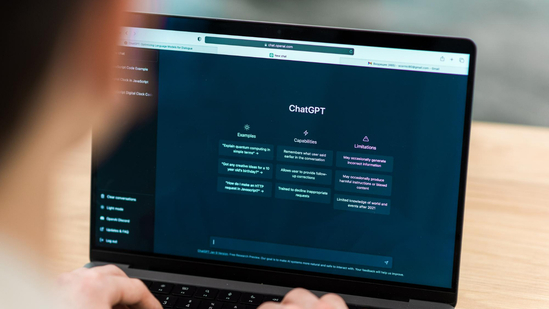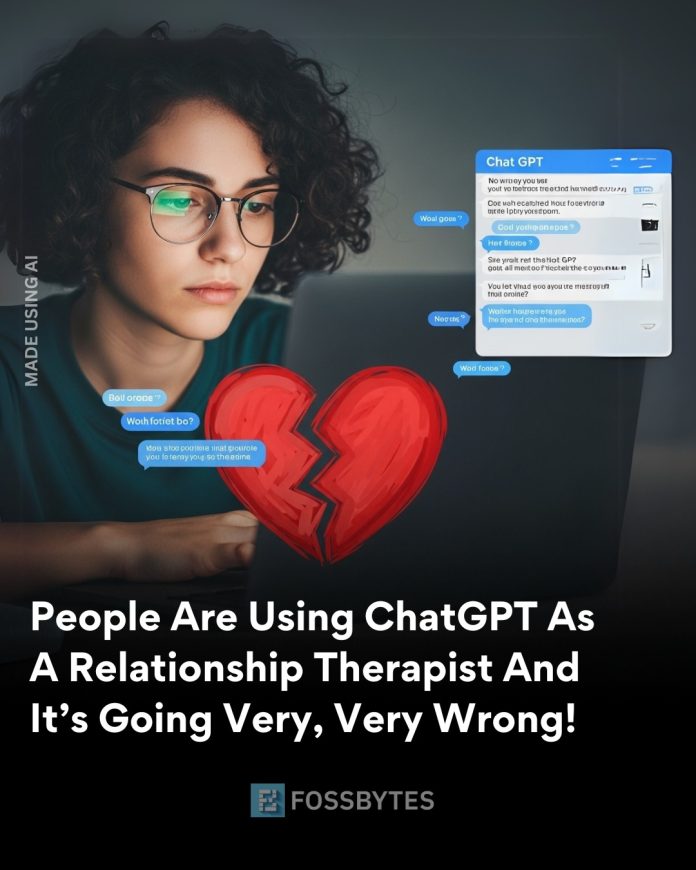In a digital age where artificial intelligence has permeated nearly every aspect of life, it is perhaps unsurprising that people have begun turning to AI tools like ChatGPT for deeply personal and sensitive advice. Recently, there has been a concerning trend: individuals are increasingly using ChatGPT as a relationship therapist. Unfortunately, this practice is proving problematic, raising serious concerns about the appropriateness and potential risks involved.
ChatGPT, an AI-driven language model, is designed to generate coherent text responses by predicting what it believes a user wants to hear based on patterns from vast amounts of data. While it can effectively generate informative content, casual conversations, or even creative writing, relationship therapy demands a nuanced understanding of human emotion, personal context, and psychological dynamics—things AI fundamentally lacks.

Many users initially feel comfortable seeking advice from ChatGPT due to its anonymity, immediate accessibility, and absence of judgment. For some, speaking openly to a non-human entity seems easier and less intimidating than confronting real emotional vulnerability with a therapist or counselor. However, this comfort masks significant risks. AI-driven responses, though seemingly thoughtful, are not rooted in genuine emotional understanding or professional psychological training.
Relationship conflicts often involve complex layers of emotional history, personality traits, unspoken expectations, and cultural contexts. Human therapists spend years training to navigate these subtleties effectively. ChatGPT, however, relies purely on textual prompts and patterns, often providing generic, overly simplistic, or even misleading advice. Without human intuition and empathetic insight, AI responses can exacerbate existing relationship issues, leading individuals to make decisions based on incomplete or inappropriate guidance.
Moreover, ChatGPT’s responses can inadvertently reinforce biases or unhealthy relationship dynamics. AI tools, including ChatGPT, reflect the biases present in their training data. Consequently, advice provided by AI might unknowingly perpetuate harmful stereotypes or offer recommendations that overlook crucial emotional or ethical considerations.
One notable issue arises when users apply AI-generated advice indiscriminately. Users have reported negative outcomes after following ChatGPT’s guidance, leading to increased misunderstandings, escalated conflicts, or even irreversible damage to relationships. The artificial nature of ChatGPT means it cannot be held accountable for misguided advice or damaging outcomes, leaving users to deal with the consequences alone.
The implications of using ChatGPT as a therapist extend beyond individual relationships. Professionals in mental health express concerns that overreliance on AI-based advice could diminish individuals’ willingness to seek qualified, professional help, leading to worsening mental health conditions and increased emotional distress.

To mitigate these risks, experts recommend viewing AI as a supplementary tool rather than a primary source of therapeutic guidance. ChatGPT can help users articulate their thoughts, provide general perspectives, or offer initial insights that might encourage them to seek professional counseling. However, genuine therapeutic outcomes require authentic human connection, professional expertise, and emotional sensitivity.
Ultimately, while technology can enhance many aspects of daily life, using ChatGPT as a substitute for a trained therapist is misguided. Individuals experiencing relationship difficulties or emotional distress are strongly encouraged to seek support from licensed mental health professionals. AI should enhance—not replace—the deeply personal, nuanced interactions that genuine relationship therapy demands.

















